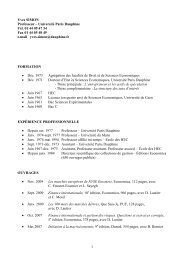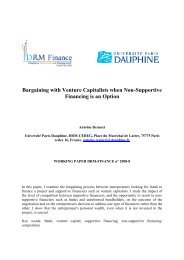Corporate governance and earnings management ... - CEREG
Corporate governance and earnings management ... - CEREG
Corporate governance and earnings management ... - CEREG
You also want an ePaper? Increase the reach of your titles
YUMPU automatically turns print PDFs into web optimized ePapers that Google loves.
Goodwill still had the bad reputation associated with it in the previous period: otherwise,<br />
S<strong>and</strong>ers, Hatfield <strong>and</strong> Moore (1938) would not have been able to assert that there was a<br />
“pervasive feeling” that goodwill added nothing to the balance sheet <strong>and</strong> a leading opponent<br />
of this view would not have felt obliged to stress that there was “no reason to exclude it from<br />
the respectable family of assets” (Paton & Stevenson, 1922, p. 409).<br />
The dominant practice continued to favor “killing off” goodwill: “nobody seems to regret<br />
its disappearance when accomplished by methods which fully disclose the circumstances”<br />
(S<strong>and</strong>ers, Hatfield & Moore, 1938, p. 14; Catlett & Olson, 1968, p. 94). There was an “almost<br />
universal feeling that the balance sheet looks stronger without it” (S<strong>and</strong>ers, Hatfield & Moore,<br />
1938, p. 14).<br />
Indications of a move towards the dynamic approach start to appear near the end of this<br />
period, although those indications are slight: for instance, the AIA (American Institute of<br />
Accountants), referring to the write-off treatment in its ARB 24 (AIA, 1944), considers that<br />
“since the practice has been long established <strong>and</strong> widely approved, the committee does not<br />
feel warranted in recommending, at this time, adoption of a rule prohibiting such dispositions.<br />
The committee believes, however, that such dispositions should be discouraged, especially if<br />
proposed to be effected by charges to capital surplus”. In view of conflicting opinions on the<br />
matter, the AIA left its members the choice of the most appropriate solution, including the<br />
possibility of keeping goodwill on the balance sheet with no reduction in value – although on<br />
the whole, this was not a highly regarded technique. Significantly, at the end of this period,<br />
Werntz, the SEC’s chief accountant, declared “in those cases in which a registrant has<br />
retained goodwill indefinitely in its accounts, the staff has inquired into the propriety of this<br />
accounting treatment. As a result of an analysis of the nature of the account, a number of<br />
registrants have undertaken programs of amortization that will result in charging the goodwill<br />
to income, or, in some cases, earned surplus, over a reasonable number of years” (Werntz &<br />
Rickard, 1945, p. 5-6).<br />
32



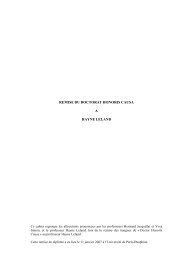
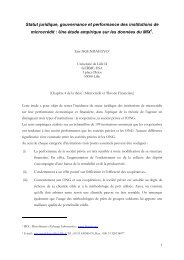
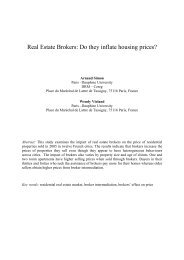
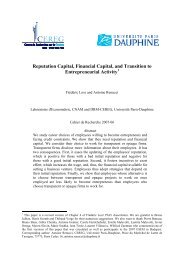
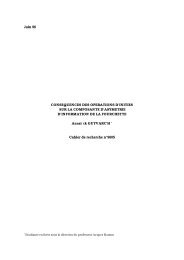
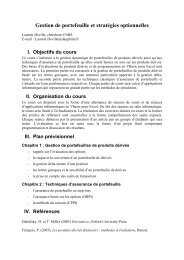
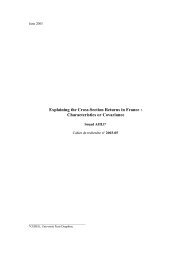
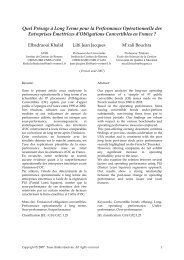

![& 6 ] ^ F ]^ - CEREG - Université Paris-Dauphine](https://img.yumpu.com/33326502/1/184x260/-6-f-cereg-universitac-paris-dauphine.jpg?quality=85)

